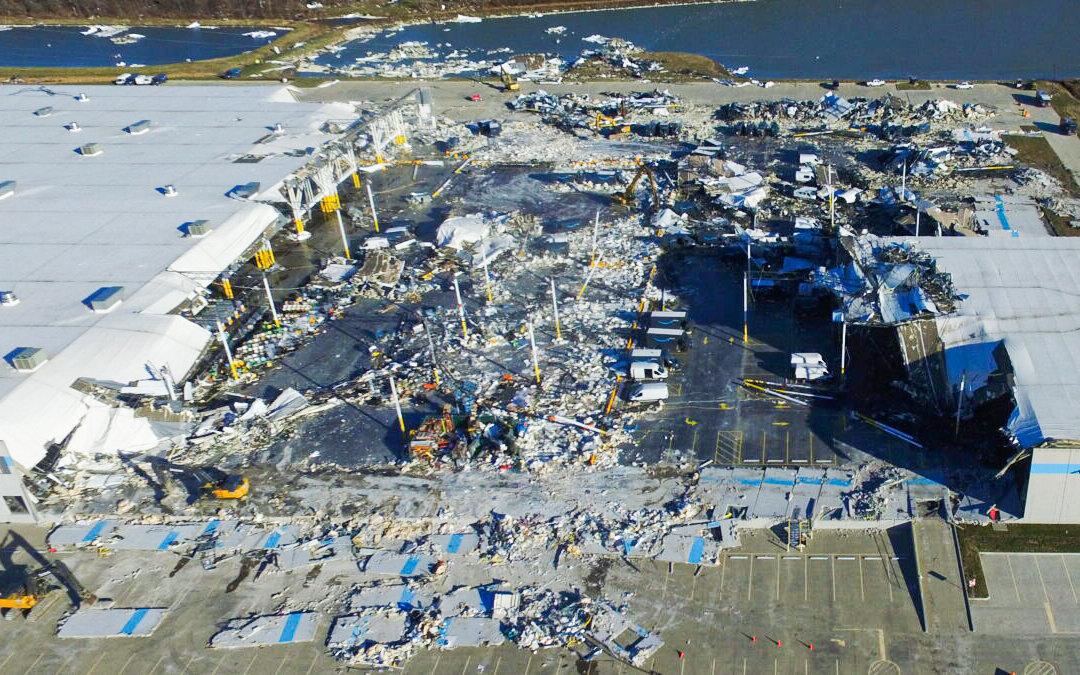Experts have pushed back against claims that deadly tornadoes that swept through Kentucky, Illinois, Missouri, Arkansas, and Tennessee on Dec. 10 and 11 can be clearly linked to manmade climate change.
In an exclusive interview with The Epoch Times, professor and climate economist Richard S.J. Tol of the University of Sussex explained why it’s so difficult to connect weather events on the scale of a tornado to shifts in the Earth’s climate.





